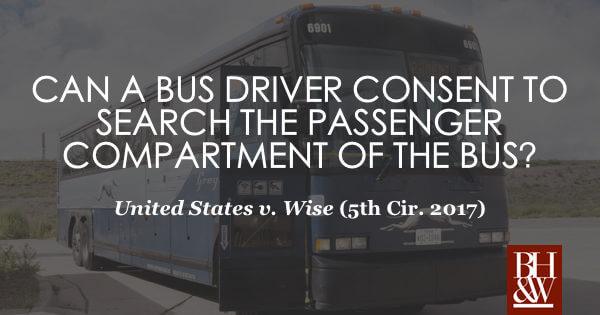In a recent case, the Texas Court of Criminal Appeals, encourages trial judges to take off the hypertechnical blinders and consider the totality of the circumstances when reviewing the propriety of search warrants and their accompanying affidavits.
State v. Jed Jordan – (29 June 2011) Judge Womack writing for a unanimous court:
An affidavit for a DWI search warrant to search an accused’s blood began with a statement that the officer had “good reason to believe that heretofore, on or about the 6th day of June, 2008, [the suspect] did then and there commit [the offense of DWI.] The affidavit then went on to describe the specific conduct that the suspect exhibited that gave rise to the DWI arrest. However, when describing the conduct, the officer did not state that the conduct also occurred on the 6th of June, 2008. The magistrate issued the warrant and blood was drawn indicating that the suspect had, indeed, driven while intoxicated.
At trial, the court suppressed the results of the blood test, ruling that the DWI search warrant was deficient as it failed to allege the specific date and time the officer observed the conduct giving rise to the arrest. The 3rd District Court of Appeals (Austin) affirmed.
The CCA took the time in its opinion to distinguish prior caselaw on this subject and held:
The observations of driving and intoxication described in the second part of the affidavit were the elements of the offense alleged in the first part of the affidavit (where the time of the offense was alleged). Under the circumstances of this case, it was a reasonable inference that the observations occurred on the same day that the offense was alleged to have occurred. We therefore hold that the Court of Appeals erred in failing to consider the totality of the circumstances contained within the four corners of the affidavit in reviewing the magistrate’s basis for determining probable cause.
The CCA went on to do some “math for lawyers” that was apparently missing at the trial level:
We also find that the magistrate had a substantial basis for determining probable cause despite the failure of the affiant to specify that time of the stop. Because the warrant was issued on June 6th at 3:54 am, less than four hours could have elapsed between the observation of the offense, and the issuance of the warrant.
Calling on the trial court (and the 3rd Court below) to focus on the totality of the affidavit, the CCA remanded the case to the trial court, where, they might just have themselves a DWI trial after all.










